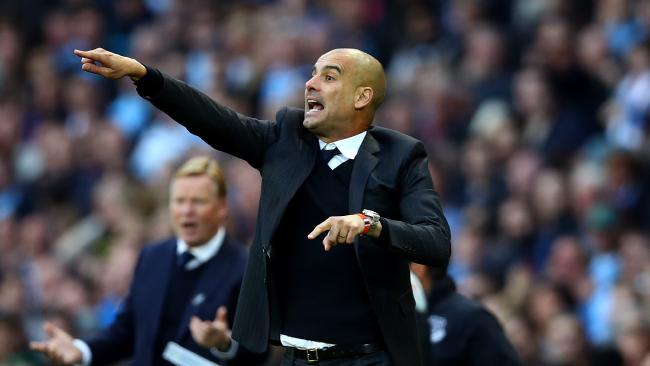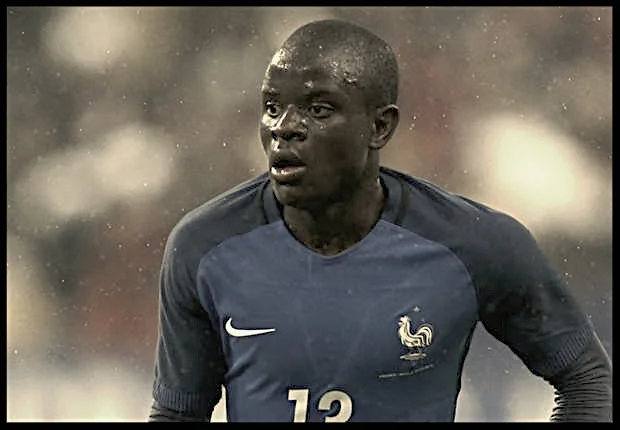A Manager's Ethos
I strongly believe that psychological influence from extrinsic forces plays an important role on the path to becoming a great footballer and a cohesive team. As a manager of young players, the way you carry yourself and communicate largely influences the group that you lead. If you come to training late, walk around the pitch slow and speak without energy your team will eventually falter due to one of these negative attributes. However, if you arrive to training early, speak with strength and authority and buzz around the pitch with intensity, you can imagine the difference in the mentality your players will be equipped with. Pep Guardiola has said about every team that he has managed that he will tolerate mistakes however, he will not accept a lack of effort. When you watch him on the sidelines or in training videos, he lives by this ethos intrinsically and that sets a high level of expectation for his players.
“He doesn’t give himself a minute’s rest. He’s pig-headed, football is his everything and he puts so much intensity into everything. Pep’s almost got a sickness for football.”
Teams are usually built in the image of their managers. Chelsea under Jose Mourinho were disciplined, efficient and opportunistic which are three words which you could use to describe the man himself. Guardiola built Barcelona according to his identity as they were precise, dynamic and elegant. Sir Alex Ferguson made the self-proclamation that he was ‘ruthless’ at Manchester United and the trophy-laden years that the club achieved under his guidance were largely due to their ruthlessness. Finally, Arsene Wenger can be classified as a transformational leader. When he took over Arsenal in 1996 the club was so infamous for a defensive minded regime that supporters coined the chant ‘1 nil to the Arsenal.' Wenger transformed the club into an offensive juggernaut capable of playing glamorous football. His demeanour is calm, composed and sophisticated which is similar to the Arsenal playing methodology.
The video below exemplifies Arsene Wenger's conviction in his philosophy and the internal challenges he sets for himself:
While having distinctly different approaches to the game, the above managers are all rated as some of the best to ever grace the dotted box. What unifies them is their commonality in having a strong and charismatic personality, one which their followers believe in and respect wholeheartedly. Ultimately, all of them have been extremely successful and their failures would be classified as successes to many others within the eternal management pool.
“You have to have a strong personality when you’re leading people, and I’ve got a pretty strong personality.”
In addition to epitomising an energetic approach and building a team in their own image a manager is responsible instilling a common mentality into each member of their football team. All of the aforementioned leaders have equipped their players with a specific mindset. Mourinho imparts discipline in positioning and structure. Ferguson emphasizes a ‘never say die attitude’ which also emanates from his players. This was exemplified during his time at Manchester United who were known for scoring important, late goals. Guardiola and Wenger advocate stylish football with an emphasis on being tranquil and controlled on the ball and positions being interchangeable. It’s fascinating to take a step back and analyse the behavioural characteristics of the managers and how they transmit into their team’s playing style. Furthermore, a leader must be conscious of their players perspective on the philosophy being deployed. If they feel that their is a disruptive force which may divide the togetherness and agreement of the unit, action must be taken which requires a strong personality. All of the managers discussed have exited influential players from their teams such as David Beckham, Zlatan Ibrahimovic and Robin Van Persie which illustrates their emphasis on maintaining control and cohesion of the entity.
As a leader it is imperative to live by your ethos and believe that it will garner success. This strong-willed approach to management is what has created such fierce rivalries between the managers examined. They regard their philosophies as the finest and indoctrinate themselves into believing that there is only one ‘correct’ way to play football. A consequence of convincing themselves internally of the above is the fierce rivalry that develops with those who oppose or disregard their doctrine. This rivalry filters to the players thereby creating some of the ferocious battles seen between Wenger's Arsenal and Ferguson's United in addition to Guardiola's Barcelona versus Mourinho's Real Madrid.
“The more the ball circulates in the midfield, the more chance the other team will dispossess us”
“If there isn’t a sequence of 15 previous passes, a good transition between attack and defence is impossible. Impossible. ”
As you can understand from the above quotes, the philosophy of elite managers can be as different as chalk and cheese.
Players, as the rest of society, come from different countries and cultures therefore they are driven by different motivators. The culture which you inject into your team is imperative to the amalgamation of uniqueness into one common understanding. It also generates an inclusivity that players can feel welcomed in. A manager must attain buy-in to their specific philosophy from the players for it to amass success. Once approval is attained, a tribe has been created.
The video below shows the tribe's conviction that Sir Alex Ferguson would guide them to success:
From the outside looking in, it is possible for us to make the case that all forms of football can garner success as proven through the managers applicable tactics discussed. However, what is success? To some, it is only winning and to others it may be winning in style. Ultimately, the key to triumph in the relentlessly critical world of sport is self-belief and conviction in ‘your’ way – characteristics which these masters of the game hold in abundance.
As I wrote this post, each and every characteristic of these great managers resonated with me because all of the discussed attributes are transferable into our everyday lives. The conviction in my principles is imperative to progression; and the energy which I exude everyday sets an example to those who I interact with.
Strive to be better and ensure that you profoundly advocate the approach you decide to use to improve.














